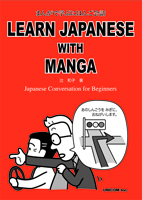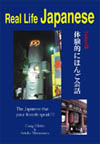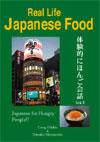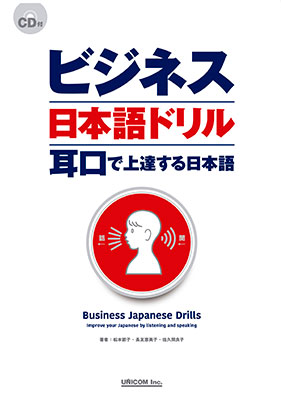 LEARN JAPANESE WITH MANGA LEARN JAPANESE WITH MANGAThese days, people come to Japan from any number of countries for a wide variety of reasons. There are people who come for business, for learning Japanese culture or technologies, for studying at universities or vocational schools, for vacation, for living with family, the list goes onc We wrote this book for any of these people who wish to try to speak Japanese, even just a little, whatever their reason for being in Japan. |

Tokyo Hatu Taikenteki Nihongo Kaiwa Have you been studying Japanese but still don't understand the words people use in daily conversation? If so this book is for you. The fact is that the Japanese you study at Japanese School is safe and correct Japanese. Whilst you will not upset anyone using Japanese School Japanese they do not teach you many words that you hear in more informal or younger environments. This is not a book of slang or improper Japanese however, simply a book of realistic, everyday Japanese. The situations in this book are based on a survey of foreigners living in Japan. We asked what were the times when they felt uncomfortable or were unable to understand what was being said. Perhaps a situation relevant to you is in here. If you have any ideas for other situations please send them to our email address shown below. This book is targetted at people who have completed a basic course in Japanese. The Kanji are 3rd grade, except where such Kanji are more regularly seen such as in place names. As is usual in these books in order to demonstrate the grammar point more easily we have sometimes had to use some unnatural sounding English. Apologies for this, but we hope that the meaning is clear. |

Taikenteki Nihongo Kaiwa Vol.2 You can learn a lot about a culture by watching TV. Flick through the channels when you ar next in Japan. It seems that at least one channel which be showing you how to make a delicous seafood dish and another will be showing you a wonderful new place to eat. All will be accompanied by women screaming OISHII!!(oishii, which means delicious), the men looking thoughtful and pronouncing that the dish is UMAI( also means delicious but is a word more often used by men). Within a few seconds you have learnt two useful words and the context in which they are used. Everyone loves food. You may have an image of Japanese food as being sophisticated seasonal dishes served on tiny plates. This is the food served in a Japanese restaurant called a RYOTEI. Most of us will be unable to ever eat at such a place. You generally have to be invited by a regular customer. Sadly, no one has ever invited me. But let me tell you about some of the restaurants near our offi ce. We have an eel restaurant where you can see three generations of the family working together. Grilled eel is thought to help you fi ght the summer heat so people are lining up outside on a summers day. A few doors away is a sushi restaurant where even if you only go once a year the chef will remember your likes and dislikes. Around the corner is the steak restaurant. He takes the best meat and marinates it so that it just melts in your mouth. But you have to eat it in silence if you want to avoid his odd stare. Even the GAIJIN, foreigners run some great places. We have a French bistro with all of the clamour of the left bank. And a Turkish restaurant run by a man who came to spend a year in Japan twenty years ago. One wife, two children later and he is still here. To fi nish up we have a bar, open until 5am, where you can complain about the day while puffi ng on a cigar. Try new restaurants. Talk to the waiters about what you are eating. Ask 2 3 the chef where he learnt to cook. Bars and restaurants are one of the best places to make and develop friendships - invite your colleagues to your local places. Get out there and interact with your neighborhood. Take this book with you. Study it, but better still, use it. If you can speak the language of food in this book you will enjoy your time in Japan even more. |

This book is recommended for the following: People who work in Japan so want to learn business Japanese. People who want to learn how to write business emails. People who do not understand Japanese business manners, etc. People who have studied business Japanese but feel uneasy if they can actually use it in real situations. |
| Home |
Copyright (C)2007 UNICOM Inc.
All rights reserved.